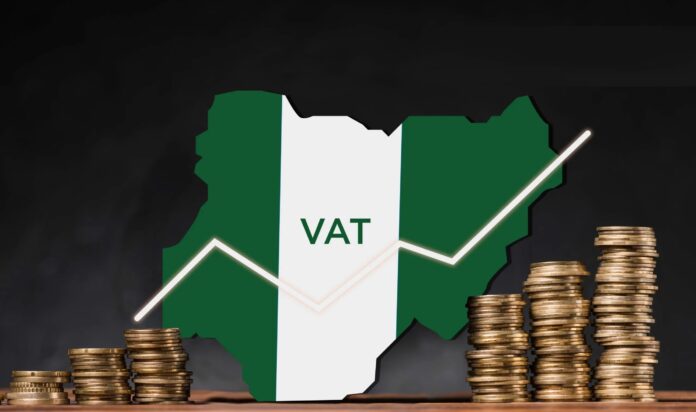Fresh National Bureau of Statistics (NBS) data released reveals that Nigeria’s value-added tax (VAT) income hit an amazing N1.95 trillion in the fourth quarter of 2024.
Highlighting both rising economic activity and better tax collection systems, the performance reflects a 62.19 percent increase relative to the corresponding time in 2023.
The Q4 number, which is a 9.23 percent rise over the N1.78 trillion noted earlier, confirms a consistent upward trend in VAT receipts when compared to the third quarter of 2024.
Emerging as the main contributor, the industrial industry made up 25.89% of the whole collected amount.Fueled by production operations and a growing consumer base, this outstanding performance highlights the industry as a major source of Nigeria’s tax base.
The News Chronicles understands that domestic VAT payments were the single largest source of revenue during the period, generating N917.4 billion. This was followed by non-import foreign VAT payments, which contributed N554.68 billion, while VAT on imports brought in N474.75 billion. Collectively, these figures reflect a broad tax base cutting across local transactions, foreign services, and imported goods.
Sectoral performance also showed some significant changes. Activities of extraterritorial organizations and bodies registered the most spectacular quarter-on-quarter growth at 180.05 percent; agriculture, forestry, and fishing followed with 70.83 percent. Human health and social work activities posted a healthy 46.13 percent increase, reflecting increased activity in critical service sectors.
Apart from production, information and communications services accounted for 16.18 percent, making them the second biggest industry by VAT contribution. Third with 15.52 percent, mining and quarrying showed resiliency in Nigeria’s extractive sectors.
At the other end of the spectrum, households as employers and undifferentiated goods and services created for own use made up just 0.01 percent—the lowest contributions. Activities of extraterritorial agencies and bodies, as well as water supply, sewerage, and waste management, closely followed with a 0.04 percent share each.
The strong VAT performance in Q4 2024 not only shows better compliance and administrative effectiveness but also suggests the growing breadth of Nigeria’s taxable economy.VAT may become even more important in financing government projects and building of infrastructure in 2025 and beyond if the trend holds.



